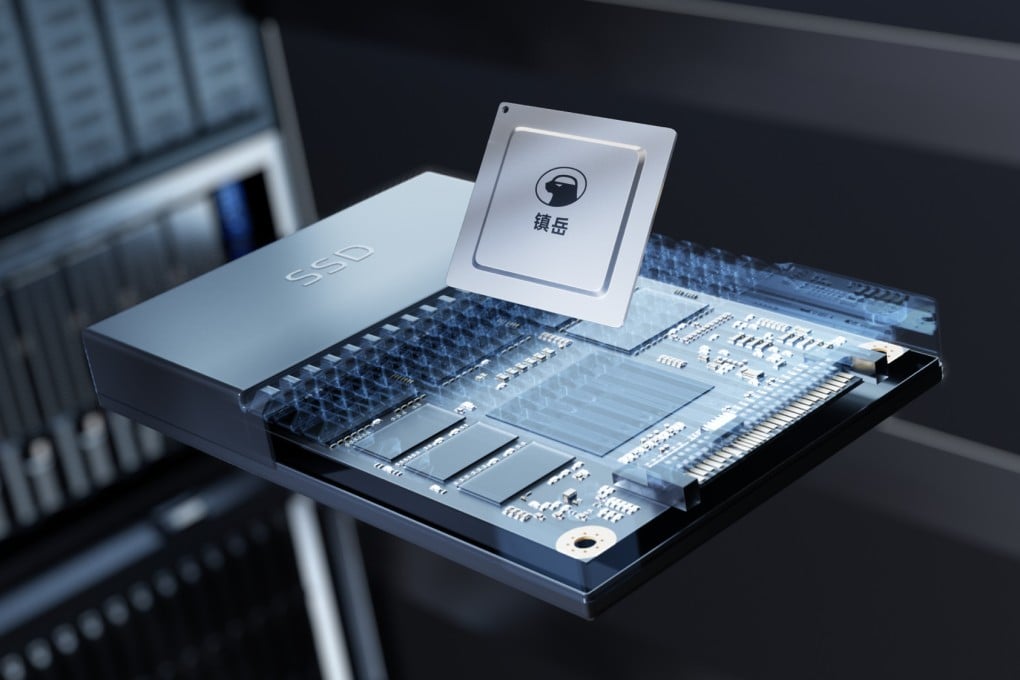Alibaba’s chip design subsidiary launches RISC-V chip to boost performance of its cloud data centres
- The Zhenyue 510 chip provides support for applications such as artificial intelligence training, online transactions and big data analysis
- RISC-V has become the new hope for China in reducing dependence on foreign intellectual property providers amid the tech war with the US

Chinese tech giant Alibaba Group Holding’s chip design subsidiary launched a RISC-V-based controller chip for server storage at its annual Apsara cloud computing conference on Tuesday.
Zhenyue 510, a controller integrated circuit (IC) for enterprise solid-state drives (SSDs), will initially be deployed in Alibaba Cloud’s data centres, providing support for applications such as artificial intelligence (AI) training, online transactions and big data analysis, according to a statement from Alibaba Cloud. Alibaba owns the South China Morning Post.
The IC represents the first such chip developed by T-Head, Alibaba’s chip design unit, as Chinese cloud service providers adopt their own in-house chip designs to boost performance.
Alibaba Cloud said the chip provides a 30 per cent lower latency for input and output operations when compared with other ICs on the market.
An SSD controller is responsible for managing the underlying NAND flash memory in a server, and handling data input and output requests from the host.
The Zhenyue 510 is based on the RISC-V architecture, an open-standard instruction set architecture which gives chip developers the ability to configure and customise their designs. It has become the new hope for China in reducing dependence on foreign intellectual property (IP) providers amid an escalating tech war with the US.
American-based RISC-V IP companies, including SiFive, have been barred from selling their commercial IP cores to Chinese companies on the US export control blacklist.